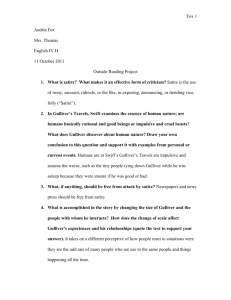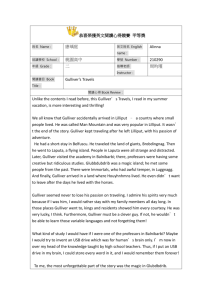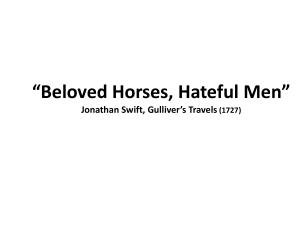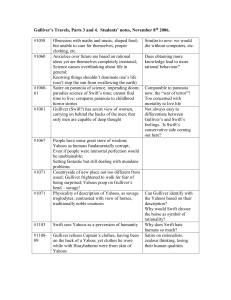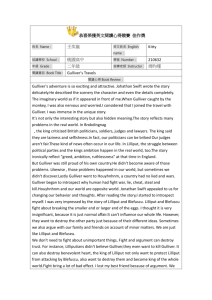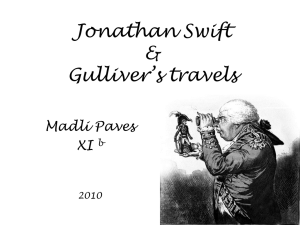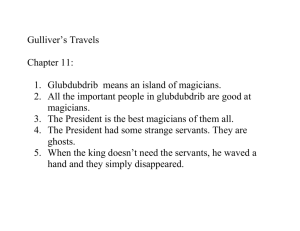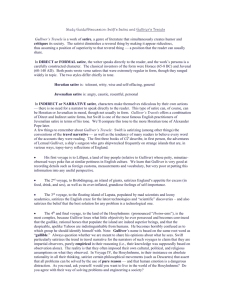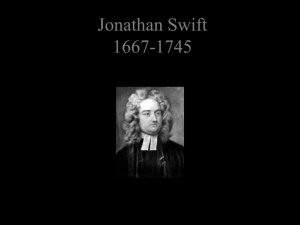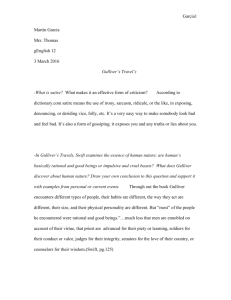Fantastic stories brilliantly told This utopian satirical novel by
advertisement
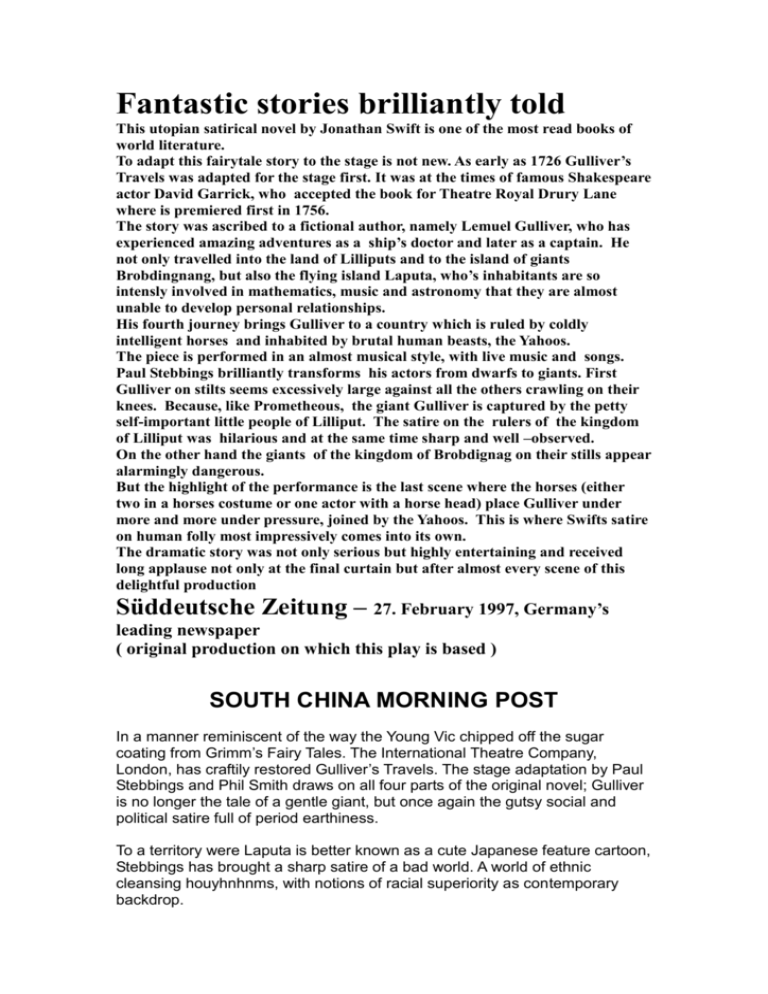
Fantastic stories brilliantly told This utopian satirical novel by Jonathan Swift is one of the most read books of world literature. To adapt this fairytale story to the stage is not new. As early as 1726 Gulliver’s Travels was adapted for the stage first. It was at the times of famous Shakespeare actor David Garrick, who accepted the book for Theatre Royal Drury Lane where is premiered first in 1756. The story was ascribed to a fictional author, namely Lemuel Gulliver, who has experienced amazing adventures as a ship’s doctor and later as a captain. He not only travelled into the land of Lilliputs and to the island of giants Brobdingnang, but also the flying island Laputa, who’s inhabitants are so intensly involved in mathematics, music and astronomy that they are almost unable to develop personal relationships. His fourth journey brings Gulliver to a country which is ruled by coldly intelligent horses and inhabited by brutal human beasts, the Yahoos. The piece is performed in an almost musical style, with live music and songs. Paul Stebbings brilliantly transforms his actors from dwarfs to giants. First Gulliver on stilts seems excessively large against all the others crawling on their knees. Because, like Prometheous, the giant Gulliver is captured by the petty self-important little people of Lilliput. The satire on the rulers of the kingdom of Lilliput was hilarious and at the same time sharp and well –observed. On the other hand the giants of the kingdom of Brobdignag on their stills appear alarmingly dangerous. But the highlight of the performance is the last scene where the horses (either two in a horses costume or one actor with a horse head) place Gulliver under more and more under pressure, joined by the Yahoos. This is where Swifts satire on human folly most impressively comes into its own. The dramatic story was not only serious but highly entertaining and received long applause not only at the final curtain but after almost every scene of this delightful production Süddeutsche Zeitung – 27. February 1997, Germany’s leading newspaper ( original production on which this play is based ) SOUTH CHINA MORNING POST In a manner reminiscent of the way the Young Vic chipped off the sugar coating from Grimm’s Fairy Tales. The International Theatre Company, London, has craftily restored Gulliver’s Travels. The stage adaptation by Paul Stebbings and Phil Smith draws on all four parts of the original novel; Gulliver is no longer the tale of a gentle giant, but once again the gutsy social and political satire full of period earthiness. To a territory were Laputa is better known as a cute Japanese feature cartoon, Stebbings has brought a sharp satire of a bad world. A world of ethnic cleansing houyhnhnms, with notions of racial superiority as contemporary backdrop. The performance had a bare, in-your-face London feel, somewhat at odds with plush ambience of the APA theatre. There were no elaborate sets or hitech tricks. What the audience got was high energy, high-quality acting complemented by vivid props and costumes and a series of ingenious but ultimately simple effects – Gulliver on stilts in the land of the Lilliputians and then the only on not on them in Brodingnag. Particularly effective was the image of a long legged Gulliver against a simple curtained backdrop which produced a wonderful illusion of Gulliver asleep on the sand. The houyhnhnms in their chesspiece horse heads walking proudly to the clack of coconut shells were in chilling contrast to the neanderthal hideousness of the yahoos. All of the actors were good, Carol Sherman and Ross Mullan gave vivid performances with elastic limbs and faces. Eric Tessier-Lavigne’s interpretation of a Gulliver driven to insanity by the madness of the world was compelling. Tom Wu astonished and delighted in a string of outrageous roles. Interspersed with songs and forays into the audience this production set a cracking pace, yet the diction was always clear, the language buttressed by action, this was ideal theatre. (Original production 12 11 96)

